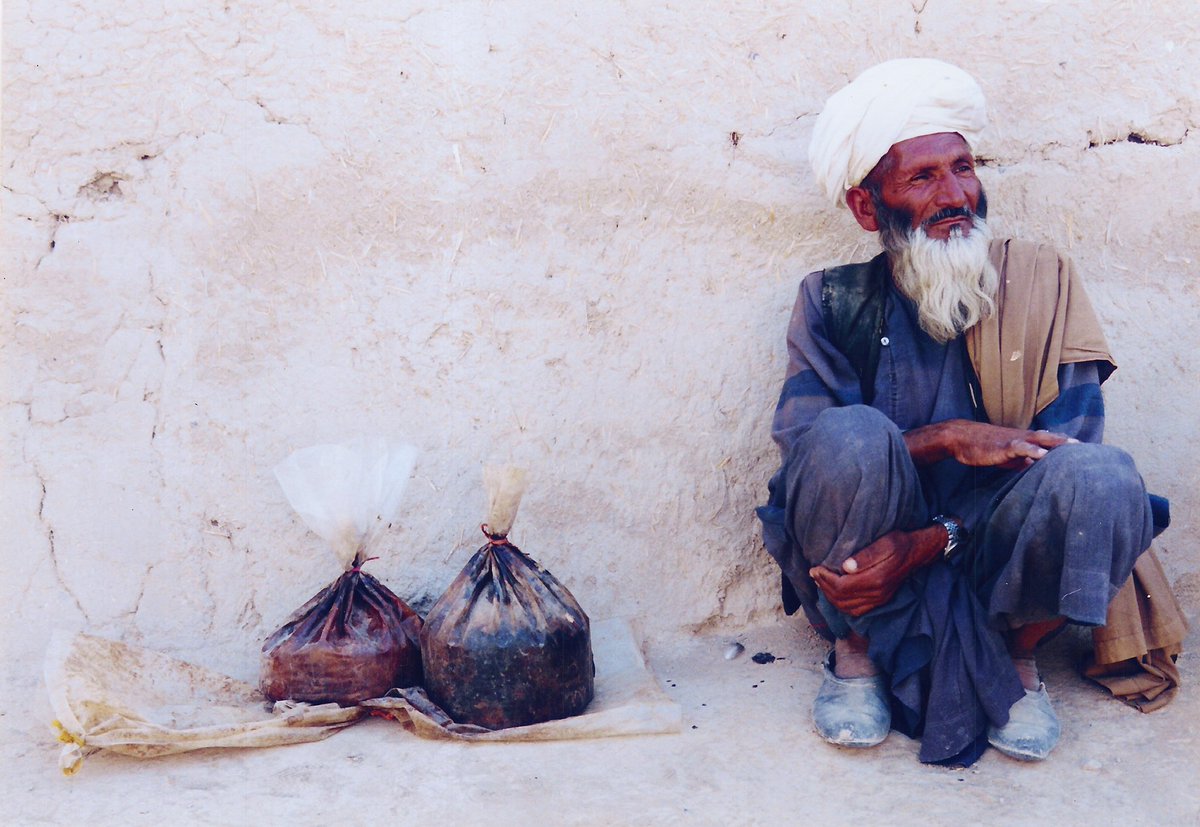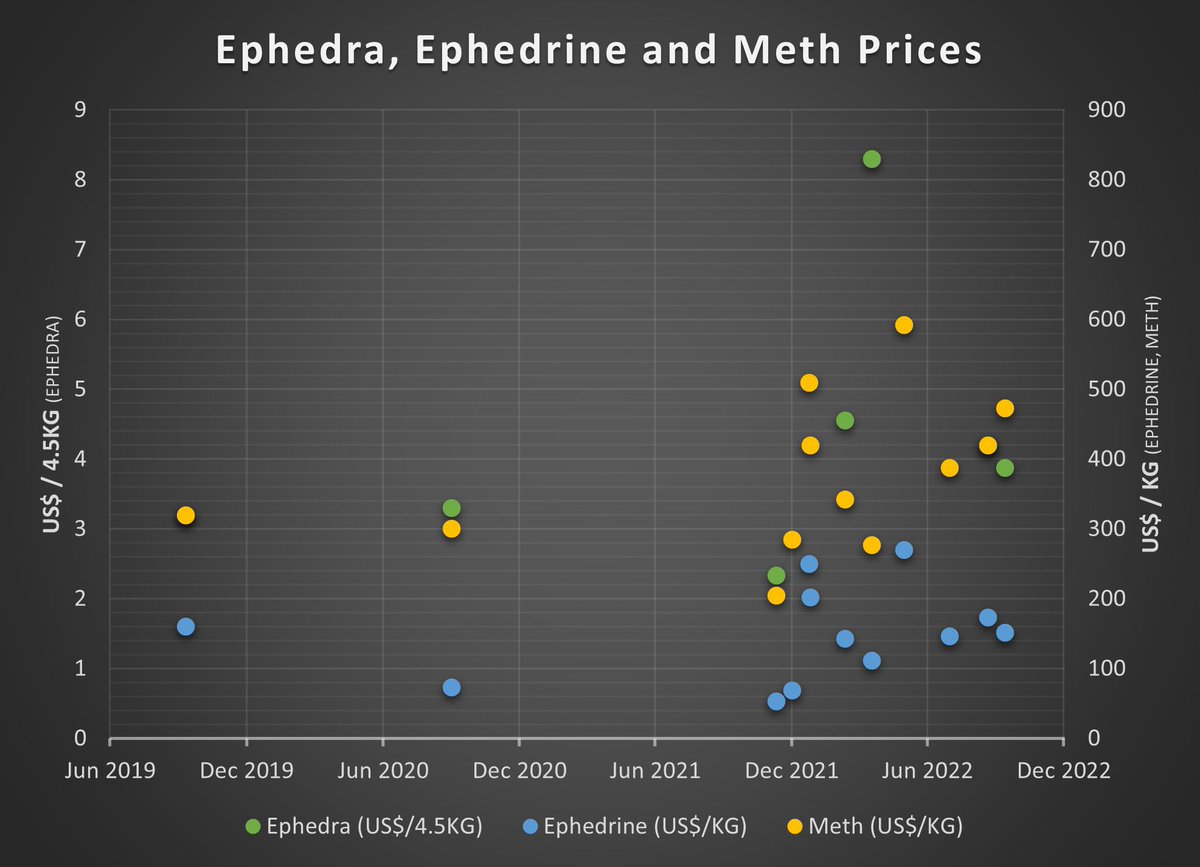1. The Afghan population is suffering from economic crisis & drought. Rural people are especially vulnerable: they lack functioning markets for legal cash crops, public sector employment has collapsed, & the private sector-once buoyed by international spending- is imploding.
2. Many are trying to escape, leaving the country in large numbers via Zaranj in the SW. The exodus began as early as May 2021 when Biden announced the US withdrawal, & increased exponentially with the Taliban takeover. In October, as many as 12K people left the country each day.
3. In the past, smugglers talked of the heyday of 2014-15 when W. Europe was “open”. Now they say business has never been so as good. The numbers departing have fallen with the onset of winter, but there are still more than twice as many people leaving as 12 months ago. 







4. Nobody knows if this pace of departures continues but there’s no reason to think migration will slow if the Afghan economic crisis worsens. Significant numbers are entering Iran, & many migrants want to continue toward Europe in spring 2022 when the mountains become passable 



5. Others remain in Afghanistan. But how will they survive? In the past, rural households had at least one member with a trade or job in the city. Now families have lost this income & have more mouths to feed, increased food prices, & some (not all) are experiencing drought. 

6. Drug crop cultivation seems an obvious choice. High-value, low-weight crops, with almost guaranteed markets & traders who purchase at the farm gate, poppy is a low-risk crop in a high-risk environment, perfectly suited to the current economic & political climate in Afghanistan
7. As we get further into the planting season there are already signs of increasing poppy cultivation. Some portray the rise of opium production as a function of the Taliban’s rise to power, interpreting this as a failure to control the industry. 





8. The reality is different: in rural Afghanistan power is negotiated, markets are thin, & the rural population is an important political constituency. Conflict, closed borders & drought have impacted on the few profitable crops that provided opportunities for farmers in the past 







9. Reports of the felling of pomegranate trees-a longterm productive asset-in the Arghandab & their replacement with poppy shows growing levels of stress even in better-off areas, & signals the potential for much higher levels of poppy cultivation in 2022. nytimes.com/2021/11/21/wor…
10. Of course the relationship between drought & poppy is complicated, particularly when wheat prices have risen dramatically & border closures are fresh in farmers’ minds. Opium is reliable during drought: it needs more water than wheat if it is to get a good yield, but … 





11. ……will yield at least something in dry conditions whereas wheat might fail. Still, you can’t eat opium. Farmers usually set aside some land for wheat, should conditions allow. 





12. It will not be possible to truly assess this season’s poppy crop until mid-March 2022 at the earliest. Only then are we able to properly differentiate between wheat & poppy using high-resolution satellite imagery. Before then, everything is just speculation. 

13. Opium will not be the only thing to watch. Over the last few years things have changed & there are new options for drug production available for rural households in Afghanistan in the form of the ephedra-ephedrine-methamphetamine economy emcdda.europa.eu/system/files/p…
14. This provides income to rural households harvesting the wild ephedra crop in the high mountains of Afghanistan (where poppy doesn’t grow) but also to those households processing the dried crop into ephedrine in what is a growing cottage industry in the SW. 







15. Despite the claims that ephedra is bulky or even, as some suggest, running out in Afghanistan, there is no evidence of a shortage on the ground. Abdul Wadood the market hub for the meth industry in the SW is booming. 



16. Imagery @AlcisGeo shows new shops, an extended storage area for dried & milled ephedra, & more inventory than ever before. There is also an expansion of the catchment area. 





17. In Bakwa, ephedra is now sourced from the mountains of Helmand, Ghor, Badghis, Farah & Ghazni, with the higher yielding coming from Ghor & Badghis. There is so much available, prices have fallen to only $0.63 kg in November 2021 compared to $0.84/kg the same time last year. 







18. This drop In the price of ephedra is particularly advantageous as other input costs for ephedrine production have risen dramatically, with most imports required doubling in price including salt, diesel, caustic soda & sulphuric acid. 





19. At the same time the price of ephedrine has fallen from $60/kg to $51/kg, thereby squeezing profits to less than $10/kg, compared to $35/kg a year ago. The price of meth has taken an even more precipitous fall, from $305/kg in April 2020 to $200/kg at the end of November 2021 



20. The returns are so low & import costs so high that the use of OTC - cough mixtures & tablets - is now unheard of in meth production. With such low margins ephedrine & meth producers need to increase volumes just to maintain their income.
21. Moreover, production will
need to rise further to offset the rising cost of living & the loss of non farm income. Perhaps this is the reason for such large amounts of ephedra & increased activity at Abdul Wadood.


need to rise further to offset the rising cost of living & the loss of non farm income. Perhaps this is the reason for such large amounts of ephedra & increased activity at Abdul Wadood.



22. Certainly imagery analysis @AlcisGeo supports reports from the ground and shows a growing capacity for ephedrine production, with a 34% increase in the number of ephedrine labs identified over the last year, & those labs that were already there appear to be producing more. 







23. All this points to a crisis in Afghanistan with much wider impact: increasing levels of migration, meth & probably opium production, all as a response to the rapidly deteriorating economic situation. 





24. Some believe the various border walls & fences constructed en route will contain these supply chains. However, there are sufficient gaps in these structures, corruption, & alternative routes (including catapults) that large numbers of people and drugs still get through. 





25. As such, while Afghanistan’s assets are frozen in the U.S, its liabilities will be borne directly by Afghans, the region, & also by European nations. More needs to be done to alleviate the economic crisis not just for the Afghan population but for those further afield.
• • •
Missing some Tweet in this thread? You can try to
force a refresh



























